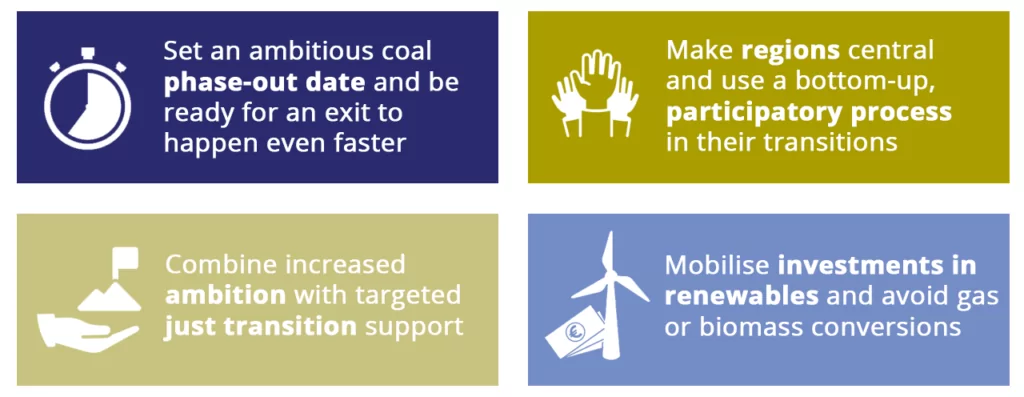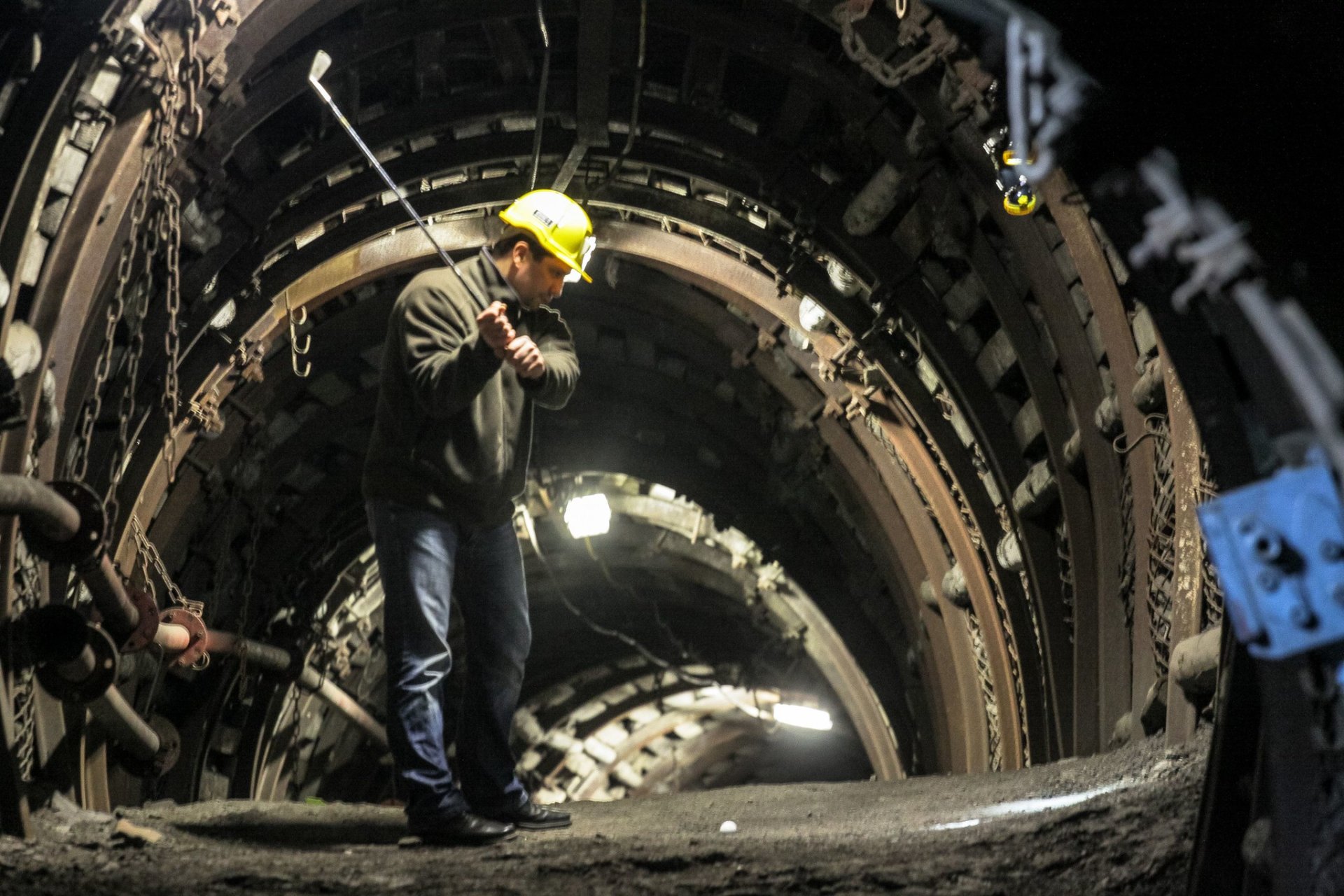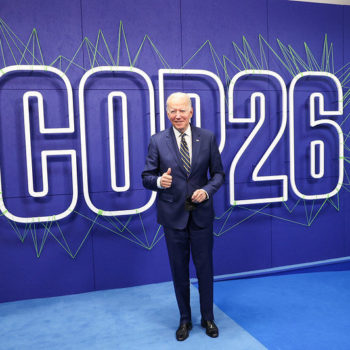A new E3G briefing reviews progress made in European coal regions and countries. It draws out lessons relevant for countries within and beyond the EU aiming to transition away from coal in a fair way.
The imperative to stop burning coal has arrived on the top agenda of world leaders in 2021. It culminated in a new international consensus at the UN climate conference COP26 that the world needs to start phasing down coal. In the Glasgow Climate Pact, countries also agreed on the need to ensure a Just Transition in doing so.
The EU played an important part in this by taking steps to retire its own coal fleet by 2030 and by supporting other countries around the world in their efforts to transition away from coal. In fact, the EU is on track to become coal-free by 2030 in a socially fair way with the pending adoption of its ‘Fit for 55 package’. However, ambitious agreements on the package will be needed for the EU to conclude both a timely and socially just transition.
Main lessons learned from the EU’s coal transition

The EU got on this pathway through a combination of increased climate ambition. This included an increasing carbon price, cheap renewables and recovery funding. Moreover, it also included support for developing regional transition strategies through a dedicated Just Transition Mechanism. However, for the EU to support its global partners to share the benefits of a coal-free power system, it needs to assume an active role in developing and financing country-specific deals like the South African Just Transition Partnership.


